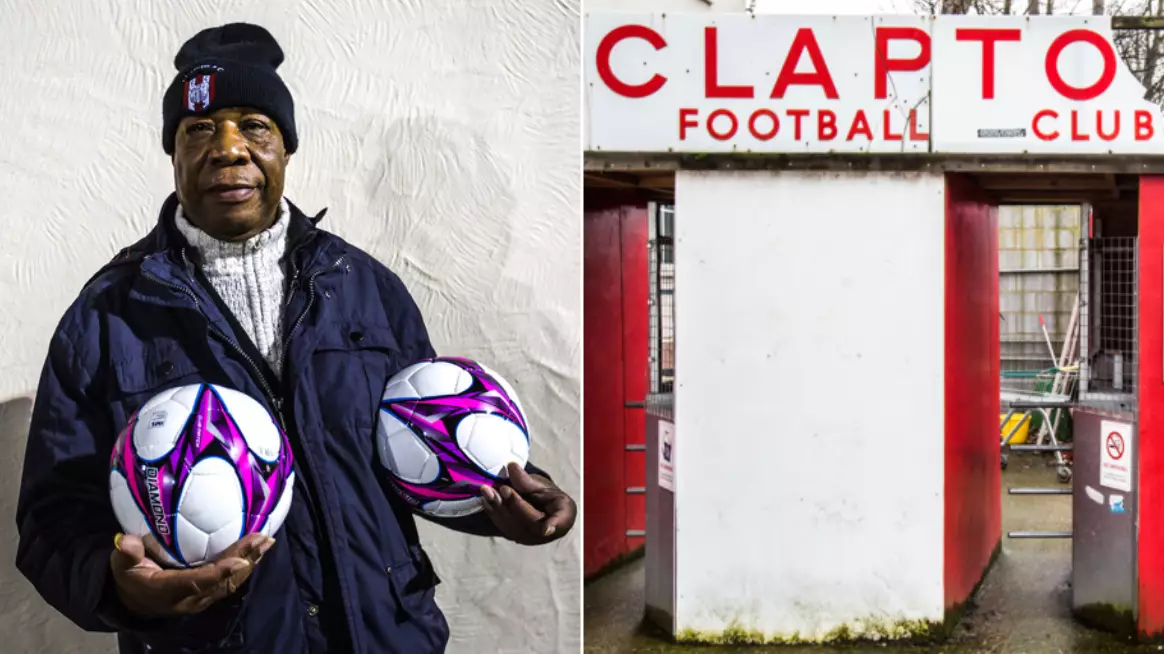
...
SPORTbible, in partnership with Sure, speak to the ordinary people under extraordinary pressure to preserve the history of a 140-year-old football club...
Clapton FC's home ground sits two miles away and a lifetime away from one of the biggest and most expensive stadiums in the country.
Whilst West Ham fans protest at having given up their past to move from their famous old home, Upton Park, and into the Olympic Stadium, the Old Spotted Dog ground just down the road is a visual and timely reminder of the Beautiful Game's gloriously inglorious roots.
For one man, it may not look like much, but it means everything to him. 'My missus knew from the start that I would be here, she knows it is my passion,' Ronnie, the head of volunteers who help keep non-league Clapton FC afloat, says with a chuckle.
Ronnie is a garrulous elderly gent from Jamaica, a hardy old soul as capable of turning his hand to plumbing as he is to painting a white line.
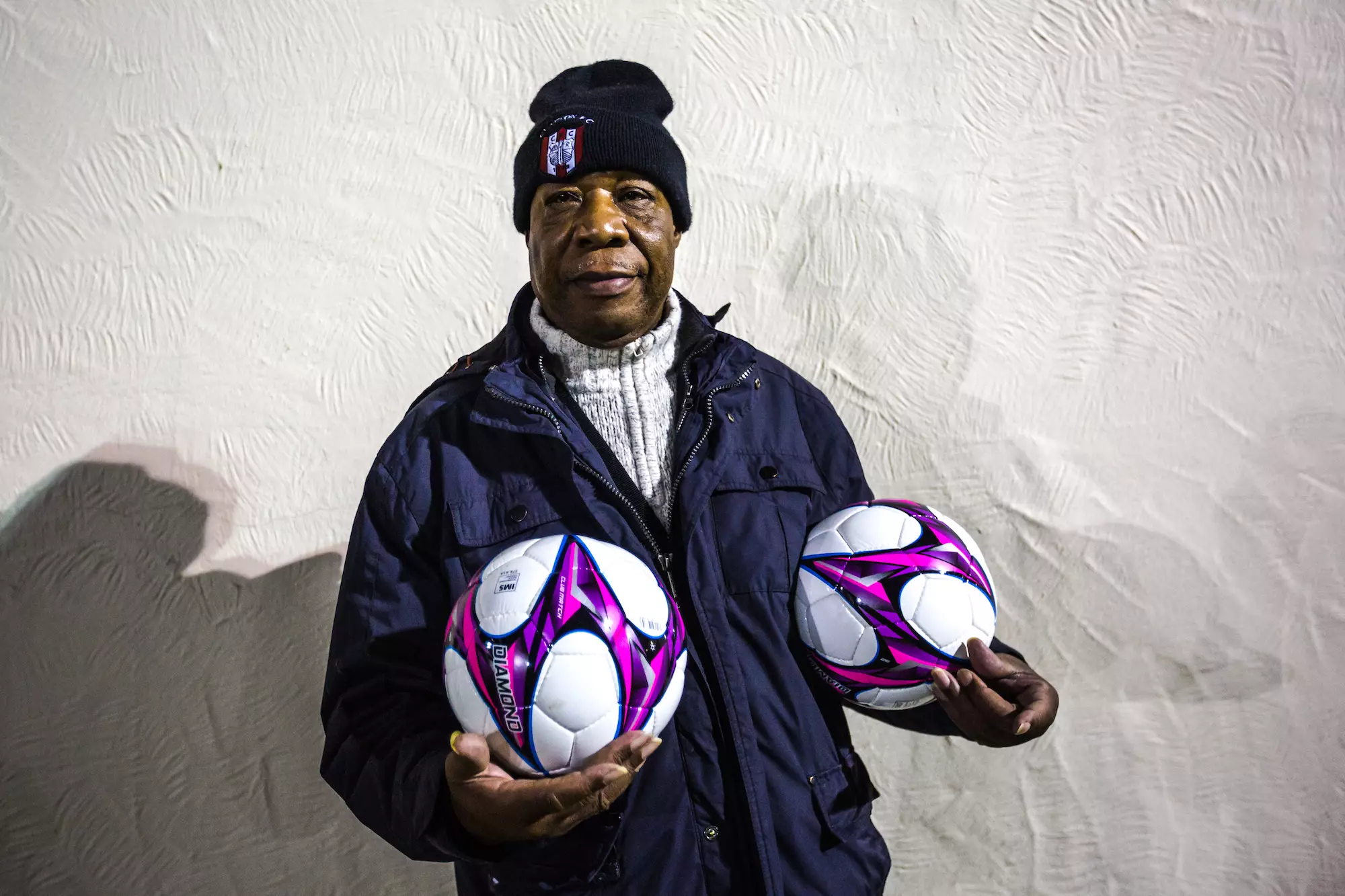
A face etched with hardship fades behind his gap-tooth grin and easy manner; his gentle voice disappears quickly into the air just before it reaches the ear. Ronnie, with his six or so fellow volunteers, is the leader of a merry band of volunteers who hold together this old club with tape and spit. Cleaning, stocking the bar, finding footballs, making the teas, writing the team sheets; anything and everything that needs to be done, is done.
There are few things that faze him; everything is taken at face value and with a knowing grin, because he understands that, whatever has happened isn't the end of the world - that's just the life a non-league volunteer happily signs up for.
'I was friends with a couple of the volunteers here before I started...' Ronnie is interrupted by one of Clapton's subs just as he sets off on a stream of consciousness. He turns around to where the interjection came from. 'Can we stop the interview for a moment. What do you want?'
'There's a problem,' the sub says. 'The ref is saying we can't start the game because they've found a big hole in the pitch. We got any sand to fill it with?'. Ronnie pauses, makes his apologies and scuttles off to find a solution to the latest problem. Sand is discovered, the hole is filled and the game against local rivals Hackney Wick can begin, ten minutes later than scheduled.
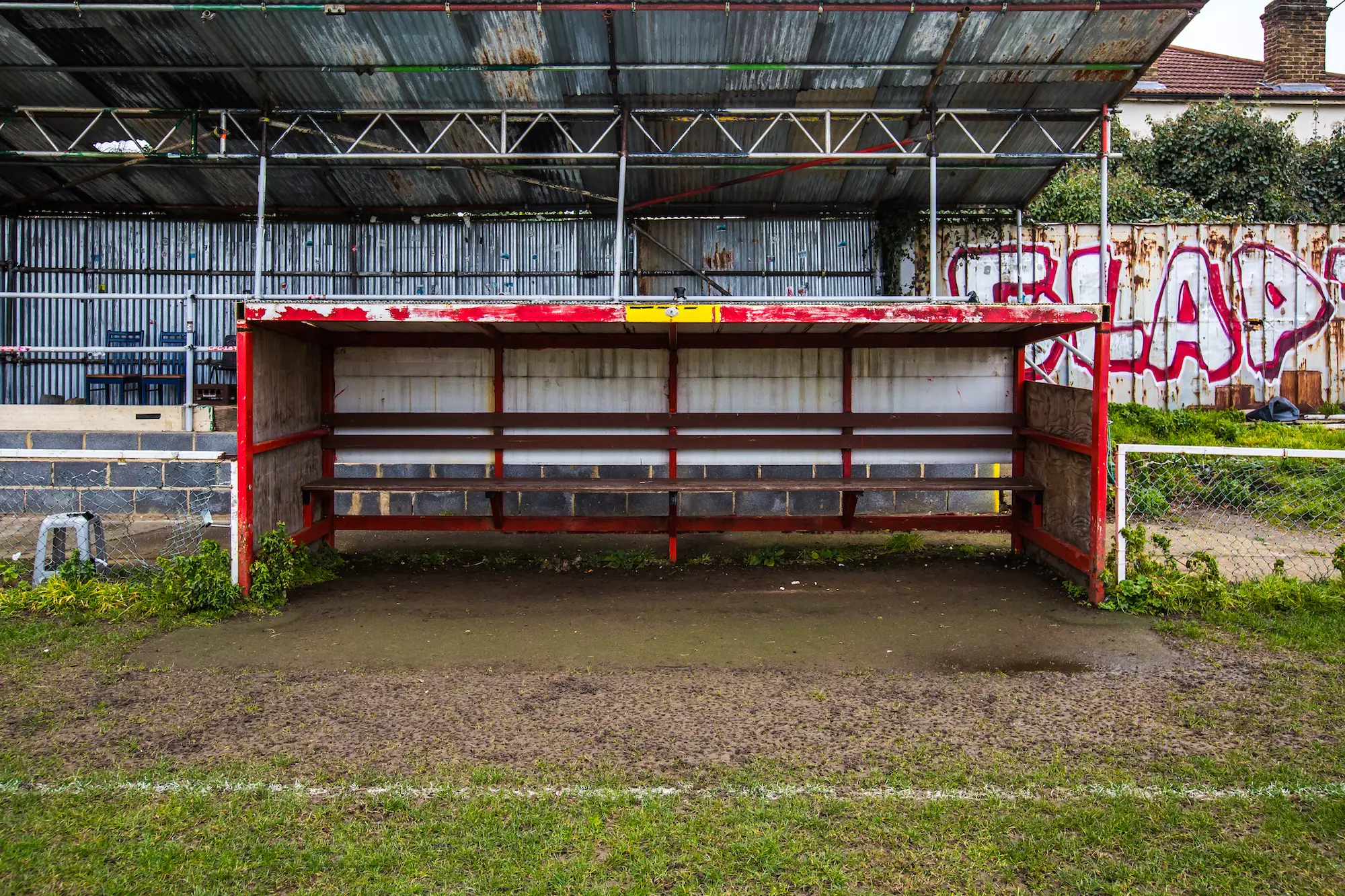
Clapton FC have played at the Old Spotted Dog since 1888, making it the oldest football ground in London.
Rather than a bright and shiny 66,000-capacity stadium next to a shopping centre, the Old Spotted Dog is like a grandparent's favourite armchair. It's ingrained and has relaxed into its surrounds, as though it has always been there.
It's not the prettiest thing to look at with its flaking paint, shattered plastic signs and old wrought-iron gates, but it has something no other multi-million pound arena has; soul by the bucketload. It's quiet, awkwardly nestled near a few budget shops and a quickfire block of flats, and on the grounds of a pub that shares the same name but looks as though it hasn't seen a pulled pint in decades. The hum of east London bubbles away quietly in the background.
Past the pub and beyond the old moss-soaked turnstile, a solitary security guard ambles around the perimeter of the pitch. He shuffles between his makeshift cabin headquarters next to the gents and the drooping brick and chipboard clubhouse. Further up is the tiny main stand, capable of holding maybe a hundred people. Optimistically, a section is set aside for the press.
Ronnie watches on as Clapton fall behind in the first half to rock-bottom Hackney. He's seen it all before.
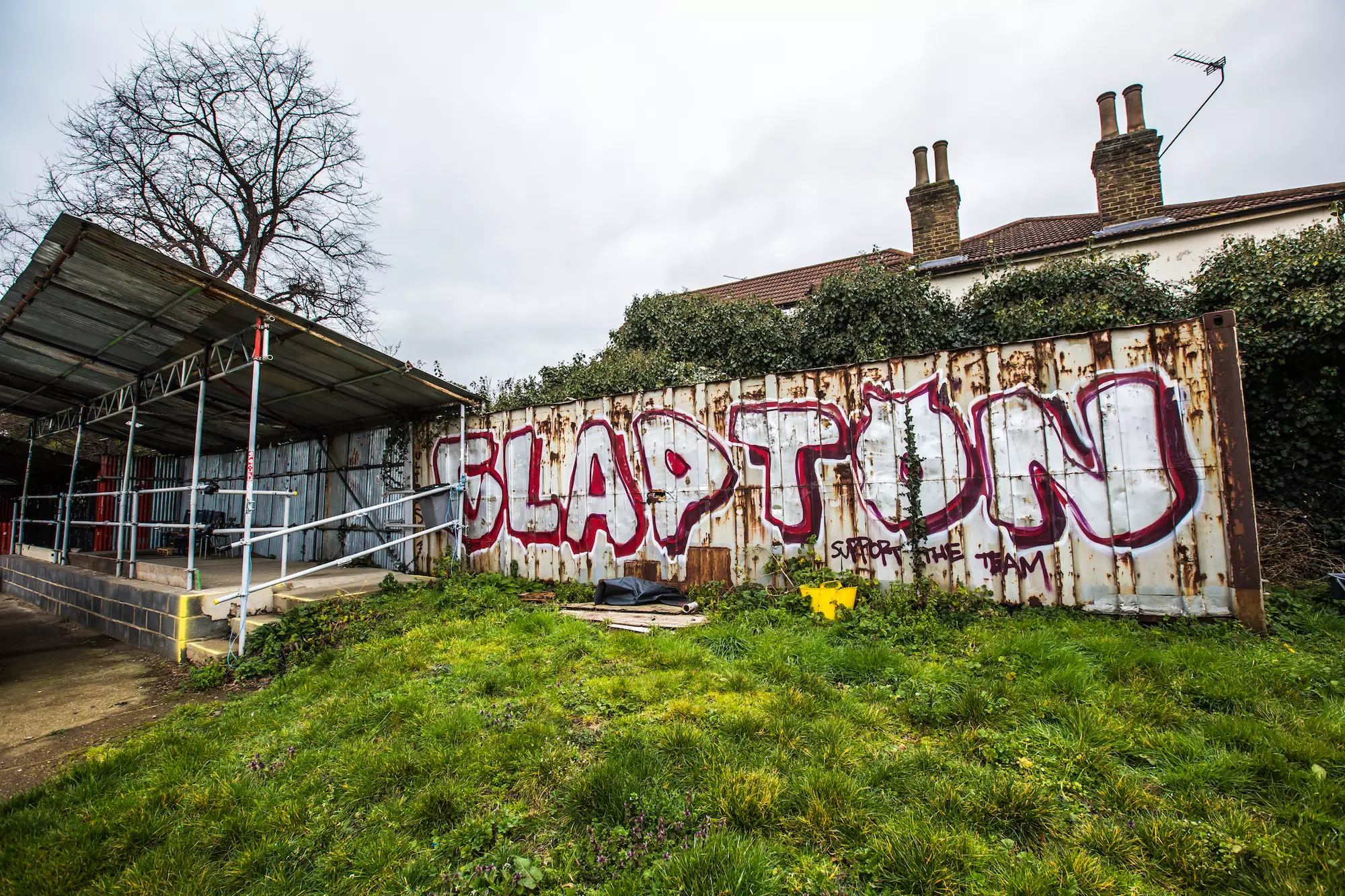
'The club is part of me, I love it. I've grown into it. It would mean everything to me to see the club doing well.'
Clapton sit sixth in the Essex Senior League, the ninth tier of English football. There's little hope of promotion this season, but although Ronnie desperately wants to see his club do well, his loyalty is unwavering regardless.
'There have been hard times before, sure,' he thinks aloud. 'The hardest? When you turn up and there's been a burst pipe and there is water everywhere. Or when the drains are blocked and you have to get your hands in there. People turn up to use the toilets, but they don't know who has cleaned the toilets. We all have our problems, all of us voluntary workers. We all get our hands dirty when we need to.'
All in a day's work for the Clapton volunteers. Even tonight's match - their first game in weeks after a string of fixtures had to be cancelled because of bad weather - is happening three days later than planned after a last-minute postponement.
There are regular reminders that this certainly isn't the Premier League. Ronnie lets out a comedic groan when a ball disappears over the fence and into a nearby garden. 'Some games we lose five balls. They're about £30 a pop, and the neighbours don't always through them back to us'. Players ask for their phones to be charged behind the ramshackle bar so they can be used at half-time. Others pop in for a cup of tea at the break before retreating to the dressing rooms for the team talk.
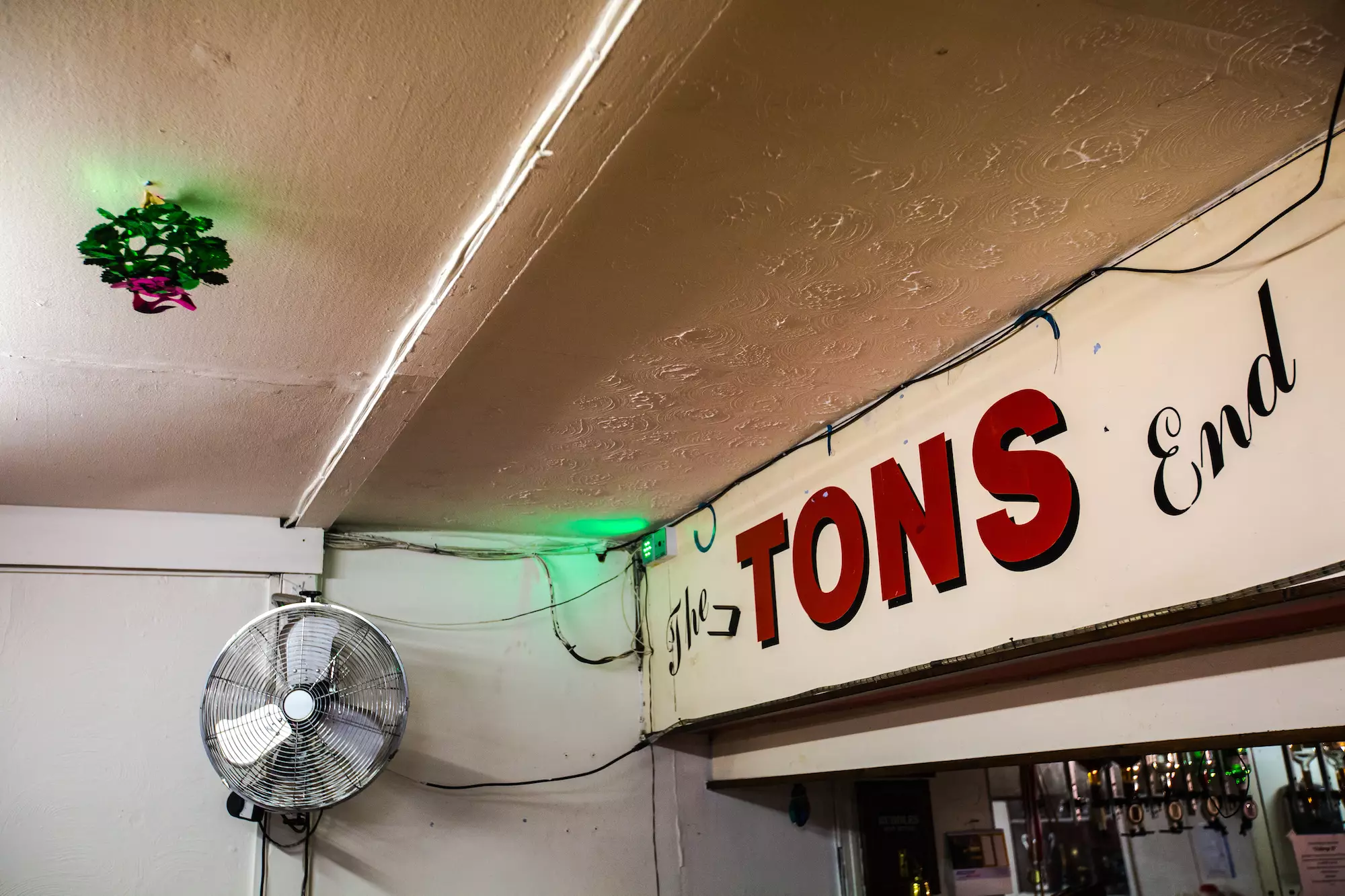
Sure, it's a romantic, back-to-basics notion of the game, but that doesn't mean everything's perfect. Times can be hard.
The raucous 'Scaffold' stand opposite the main stand, is plastered in anti-fascist stickers and graffiti but rings silent on derby night. A smattering of hardy souls mill around for the game having paid their £6.50 for the honour, but there's not much going on.
Still, the volunteers show up and do what they can, despite the pressures of life and of football. Simply there to help out in any way they can because they care.
Inside the clubhouse and a lone TV is humming out commentary from the Champions League fixture that same night. A window just to the left of the screen looks out onto the action on the lumpen pitch and the real world. A trickle of fans come in for the odd tea and chocolate bar.
'The club needs people,' says Earl, another volunteer who mans the bar. 'I'm here for my community, and I love my community. We get together after the games and have a drink, listen to music and play dominoes. We have a good time.' Win, lose, or draw, everyone gathers together after a game.
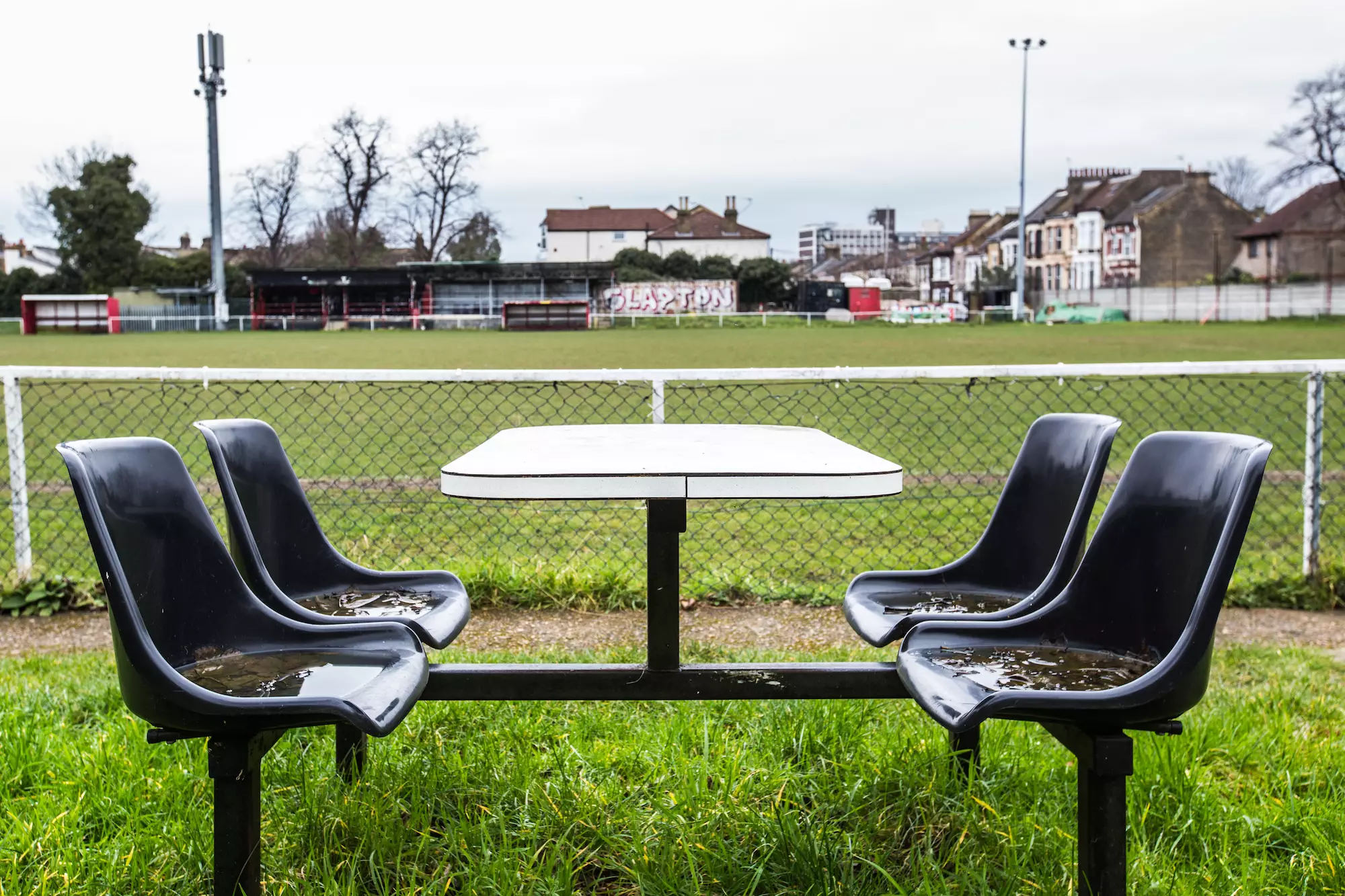
The action ticks along in the background while volunteers hum about, doing what they need. The players trudge off the field at full time; somehow, Clapton have conspired to lose 2-0 to their struggling rivals, with whom they share a ground.
Another comedic moment. 'I don't recognise this Clapton side,' Ronnie says. He's not talking metaphorically about their inability to show up on the 'big' occasion. He literally doesn't recognise them - another reminder of the vagaries of non-league football. 'There are about six or seven players I haven't seen before. I've been away for a few months back home in Jamaica and all the best ones have left to play for bigger clubs!'
After the whistle goes, one fan greets the team while they make their way back to the dressing room. 'C'est la vie', he offers in solace to each one, shaking their hand to lessen the blow of the loss. He's a West Ham fan but has had enough so has forsaken his season ticket. 'I'm so tired of watching millionaires play and not care, and I'm tired of the other fans too. At least I can watch a real game of football here.'
During the day, some of the players are teachers, some work in law. All love the game. The standard isn't up to much, but it's earnest and everything is motivated by a singular force; love of the game and of the club.
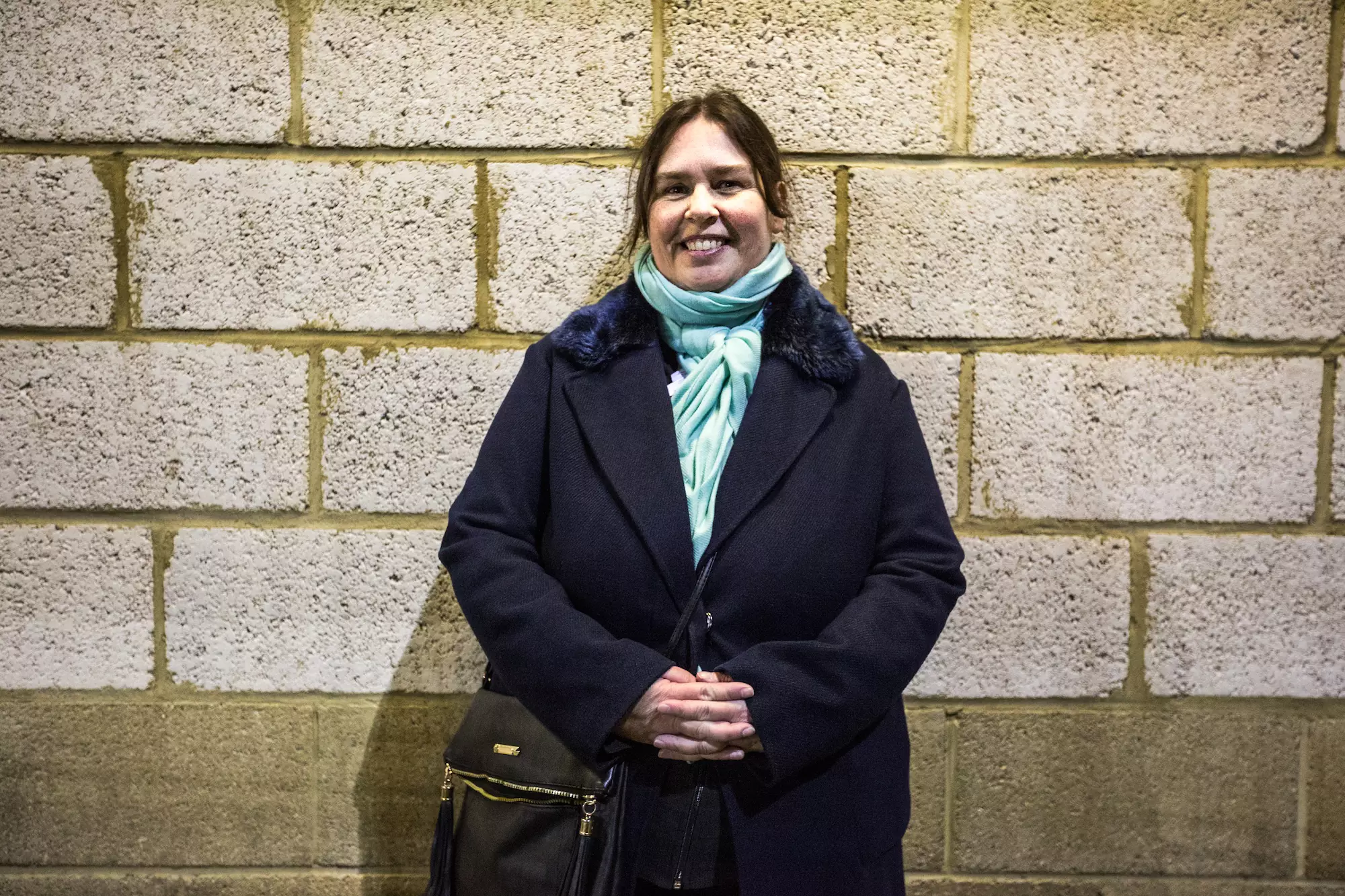
Even the players admit there wasn't much doing during the game. 'The ref gave two minutes added time, no way that was two minutes,' says one of Clapton's boys as boots clack on concrete in the distance. 'We wouldn't have scored if there were 20 minutes added time, mate,' says another. Harsh, but fair.
Their night is done but for the volunteers, there is still work to do. Shelley - another volunteer - needs to round up the kit to wash it, the others need to sweep and tidy. Gordon, a surly presence who says little, wanders up the road to collect chicken and chips from a nearby shop. It's the player's post-match meal.
Once everyone disappears into the night, home to their families and loved ones, at about 11pm, Ronnie turns off the lights and locks up to go home. He'll be in the next afternoon to pick up where he left off, tidying a few bits here and there. 'I've never thought about not turning up, no matter how hard it gets. Football is my passion. Clapton is my passion.'
In the dark distance, over in the Scaffold, one daubing on the corrugated iron of the sparse frame stands out above the others. 'The heart is a muscle the size of a fist,' it reads in large letters. 'Keep loving. Keep fighting.'
Advert
WORDS: WILSON CRANFIELD
PHOTOGRAPHY: JAKE LEWIS
Featured Image Credit: